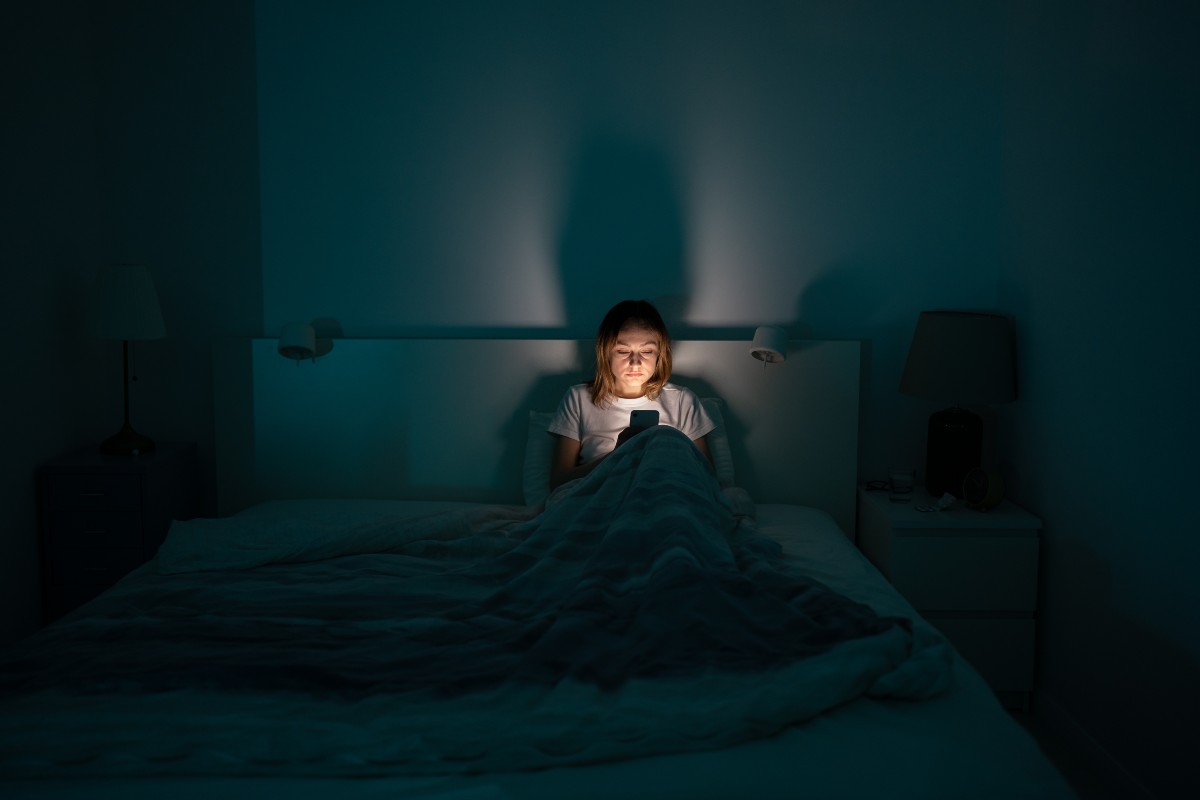
Side Effects of Using Phones at Night
We’ve all been there, thinking to ourselves “just five more minutes” while scrolling TikTok at 1am, only to realise it’s now the middle of the night, you’ve been up perusing the internet for far longer than you’d realised, it’s getting light outside and the birds are chirping. In this day and age, it’s made so easy for us to fall down the rabbit hole of endless scrolling, swiping, late-night group chats, or watching that “one last” episode on Netflix through your phone.
We think it’s about time to start a genuine conversation about what all that extra screen time at night is actually doing to us. Because, despite what we convince ourselves, it’s not just a bit of lost sleep — our bodies, minds, and moods all take a hit the day after. And if you aren’t careful, it can easily become an ongoing issue throughout the week that eventually catches up with you on Saturday morning.
So here we are, bringing you the not-so-fun side effects of using phones at night — served up with a healthy dose of honesty and a smidge of British sarcasm.
1. Sleep? What sleep?
Let’s kick things off with what may already be common knowledge for some. Staring at your phone before bed has the ability to mess with your sleep — big time (1).
Phones emit blue light, which essentially has the ability to trick your brain into thinking it’s still daytime. That in turn stops your body from producing melatonin, which is that one important hormone that helps you feel sleepy (2). So even if you might feel tired, your brain’s still feeling as though it’s time to be awake.
The result? You might struggle with falling asleep, have trouble with waking up in the middle of the night regularly, or just get plain and simple rubbish-quality sleep. The next day you’ll likely wake up feeling like you’ve been hit by a bus, consumed an inordinate amount of caffeine, and then wonder why you’re knackered despite “sleeping” for 8 hours.
Safe to say, using your phone before bed and staying up until all hours isn’t doing you any favours in getting a proper night’s rest.
2. Anxiety spirals
This is one really important note that we’d like to highlight which people may not be aware of. Studies have shown a link between excessive nighttime phone use and mental health, especially anxiety and depression (3). Now, we’re not saying that glancing at your phone in bed every now and then is going to cause issues. But, regularly lying in bed and scrolling through specially curated Instagram feeds while you’re lying in bed waiting to go to work in the morning, can have a significantly negative impact.
During the night, your brain looks to shut down somewhat to help it rest for the day ahead (4). It can make it easy to be overcome with negative thoughts or comparisons to what we see on social media. You’re tired, alone with your thoughts, and now excessively consuming content that can easily make you feel like you’re not doing enough with your life. It’s not hard to understand how it creates the perfect environment for overthinking and self-doubt.
Let’s not forget the notifications, most phones deliver a constant barrage of news alerts and doom-laden headlines, and as a result it’s no surprise that anxiety levels can shoot up. You and your brain were heading up to bed thinking it was time to wind down. Instead, it’s now travelling at 100mph reading about everything that could possibly be going wrong in the world.
3. Your eyes are not okay
I think it’s safe to say that we’ve all been subject to that dry, burning, sandpaper-eyes feeling after a long phone session. Despite what you may think, that’s not just bog standard tiredness — it’s actually digital eye strain. Our eyes aren’t built for focusing on tiny screens for hours, especially when it’s supposed to be bedtime.
Signs your eyes are struggling with the strain can include:
-
Blurry vision
-
Headaches
-
Sore, dry eyes
-
Trouble focusing on anything else (5)
The icing on the cake? Using your phone in the dark makes it all the worse. Your pupils naturally dilate at night when you’re in the dark, this results in them letting in more light (6). Meaning that harsh brightness from your screen has a much more intense impact. It’s like a laser being shone directly in your face. Not really ideal for long term eye health.
4. You forget how to switch off
Using your phone regularly at night affects your ability to unwind. You can get so accustomed to the mental stimulation — the lights, the sounds, the constant swiping — that your brain begins to stay wired, even after you finally end up switching your phone off.
For most people, the good old days of reading a simple book before bed to relax are long gone. It's instinctive now to reach for your phone and stare at it playing games or maybe reading online until you finally decide to put it down and attempt to go to sleep.
This all adds results in your brain being constantly active. You may not realise how tiring it is for your brain as it never gets a proper break, over time that can lead to burnout. This fatigue can even manifest itself physically too (6).
5. Bad habits, bad mornings
Using your phone late at night usually goes hand-in-hand with waking up late, feeling groggy and frantically rushing to get ready for the day. Often this results in a stressful morning. Effects can even continue throughout the whole day, leaving you fighting that dreaded brain fog till 5pm when you can head home and start the cycle all over again.
If you’re also reaching for your phone the moment you open your eyes, it’s easy to be pulled into a continuous cycle. Your brain ends up flooded with social media, emails, the news before you’ve even brushed your teeth.
What can you do about it?
With a few easy steps you can help yourself gradually reduce that screen time, particularly around bedtime, hopefully leaving you feeling more rested and ready for the days ahead.
Set a screen curfew
Give yourself a specific time to put that phone down, even 30 minutes before bed can help. Use that time to relax and unwind, you could read, stretch, journal, listen to calming music — whatever works for you.
Switch to night mode
Most phones have a "night shift" or "blue light filter" setting. This doesn’t work wonders but it can help make it a bit gentler for your eyes.
Develop a new bedtime routine
Help yourself by starting a new evening routine to help yourself get used to not staring at your phone in bed, little changes can have a big impact long term.
Side effects of using phones at night: final thoughts
We’re all human, some days we want to just endlessly scroll social media before bed and that’s ok. It’s important to prioritise your wellbeing and if you notice phone use taking its toll then why not try giving yourself a break from it before bed? Be kind to yourself. Switch off a little bit earlier, and let your body get the rest and recovery time it needs to work at its best.
Sources:

Gemma Henry - Content Lead
Gemma finds sleep fascinating and describes the discovery aspect of her role as eye-opening. Her keen eye for detail and dedication to thorough research ensures that Bensons customers get the informative sleep-based advice they're looking for.